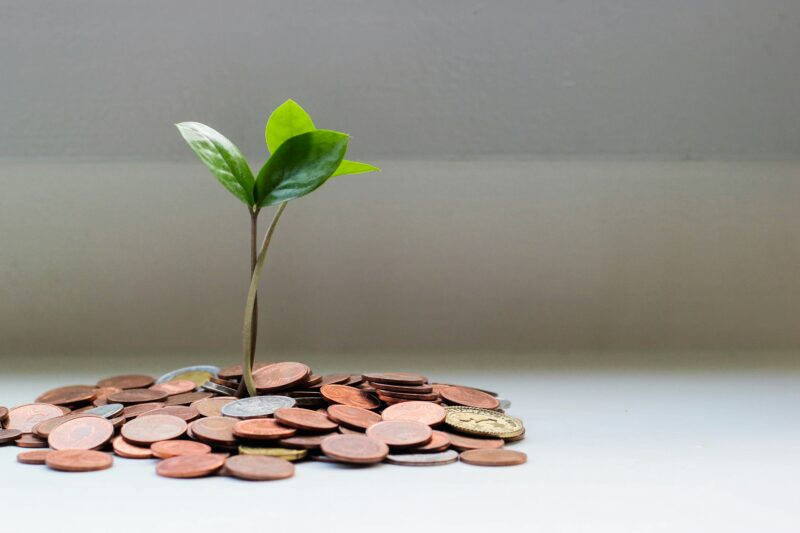With energy prices on the rise and climate change high on the national agenda, more UK homeowners than ever are exploring the benefits of solar panels. As an investment that will help the UK to achieve its net-zero carbon emission goal, you might be wondering, “Are there grants for solar panels? In short: yes — and they could significantly reduce your upfront costs.
So if you’ve been contemplating making the all-important switch to solar, but are looking for some additional support to help fund it, here’s everything you need to know about government grants for solar panels in the UK. From eligibility to the potential savings, here’s how you can benefit from solar schemes.
How Do I Get a Government Grant for Solar Panels?
Government grants for solar panels are designed to make renewable energy more accessible, especially for households looking to cut energy bills and reduce their carbon footprint. In 2025, the main grant schemes include:
1. ECO4 Scheme
The Energy Company Obligation (ECO) is a government-backed initiative designed to improve energy efficiency in homes across the UK. The current phase, ECO4, is set to run until March 2026.
Funded by the UK’s biggest energy suppliers, the scheme offers free grants for a range of home upgrades, helping households cut down on energy bills while supporting the UK’s shift towards greener, more efficient energy use. Under ECO4, eligible improvements include insulation, upgraded heating systems, and renewable technologies like solar panels and heat pumps.
To be eligible for this scheme, you must:
- Be a homeowner, private tenant, or private landlord
- Currently receive at least one income-related benefit
- Have a property with an EPC rating of E, F or G
Once your eligibility has been verified, contact an approved installer or local authority to help you with the application process.
2. Local Authority Flexible Eligibility (LA Flex)
LA Flex allows councils to extend support to households that don’t meet the standard criteria for the ECO4 scheme. This scheme offers free home improvements if:
- You’re struggling to pay your energy bills, even if you’re not on benefits
- You suffer from a health condition aggravated by cold conditions
Once again, you’ll need to determine your eligibility and then follow the application process outlined by your local authority or a participating organisation to apply.
3. Smart Export Guarantee (SEG)
While not a grant, SEG ensures that if you generate more solar power than you consume, your energy supplier pays you for exporting it to the National Grid. It’s a long-term way to earn back on your investment.
To apply, start by contacting your local council or a certified solar provider like Project Solar. They can help assess your eligibility and guide you through the application process.
How Much is the Government Grant for Solar Panels?
Grant amounts vary depending on the scheme and your individual circumstances. Under ECO4, for example, solar panel funding can cover a large percentage of installation costs—in some cases, even 100%, especially for low-income households or those in off-grid locations.
The Smart Export Guarantee also offers long-term savings by paying households for any surplus electricity they send back to the grid. Tariffs vary, but typical payments range from 1p to 15p per kWh exported.
Solar Panel Cost UK Government Grant Comparison
Let’s put the figures into context. In 2025, the average cost of a solar panel installation for a three-bedroom home in the UK is approximately £9,800. However, with grants for solar panels, you could reduce this significantly:
| Installation Scenario | Estimated Cost | Potential Savings |
| Without any grant | £9,800 | N/A |
| With ECO4 or LA Flex Scheme | £0–£1,500 | Up to £6,000 |
| With SEG payback | £9,800 (initial), earn back via energy export and energy savings | Up to £212/year |
When factoring in energy savings, often around £400 per year, potentially doubling that with a battery energy storage system, the return on investment becomes even clearer.
Are Solar Panels Worth It in 2025?
Yes, undoubtedly. While the upfront cost might seem daunting, the combination of a government grant for solar panels, energy savings, and potential export income means most households break even in about 10 years, and then enjoy free electricity for years after.
Environmental impact is another huge benefit. A typical home solar PV system can save 1.5 to 2 tonnes of carbon emissions per year, helping you do your bit for the planet.
Additional Solar Panel Financing Options
If you don’t qualify for these UK solar panel grants, homeowners can also explore:
- 0 % interest green loans from banks
- Buy Now, Pay Later schemes from certified installers
- Lease or Power Purchase Agreements (PPAs), where the provider owns and maintains the panels, and you benefit from the lower electricity cost.
- Pay zero VAT on solar panels until 2027
If you’re looking for flexible financing options to switch to solar, contact us today for tailored solutions.
Why Choose Project Solar?
When investing in solar, who you partner with matters. At Project Solar, we combine over a decade of experience, more than 45,000 successful installations, and a commitment to customer satisfaction that’s reflected in our reviews.
We don’t just install panels—we guide you through solar panel funding, help with EPC checks, and ensure you’re well-supported, even after the installation is complete.
Our systems are MCS-certified and designed to provide optimal performance, year after year. Plus, with our smart 24/7 monitoring app, you can track exactly where your energy is being used and how much is being exported back to the grid!
Conclusion
Solar energy is no longer a futuristic luxury. It’s a smart, sustainable investment. So, whether you’re benefiting from schemes or making use of the VAT-free purchases, the journey to a greener, more cost-effective energy future is more accessible than ever, thanks to the government grants for solar panels.
Ready to make the switch? Get a free quote from Project Solar today.

